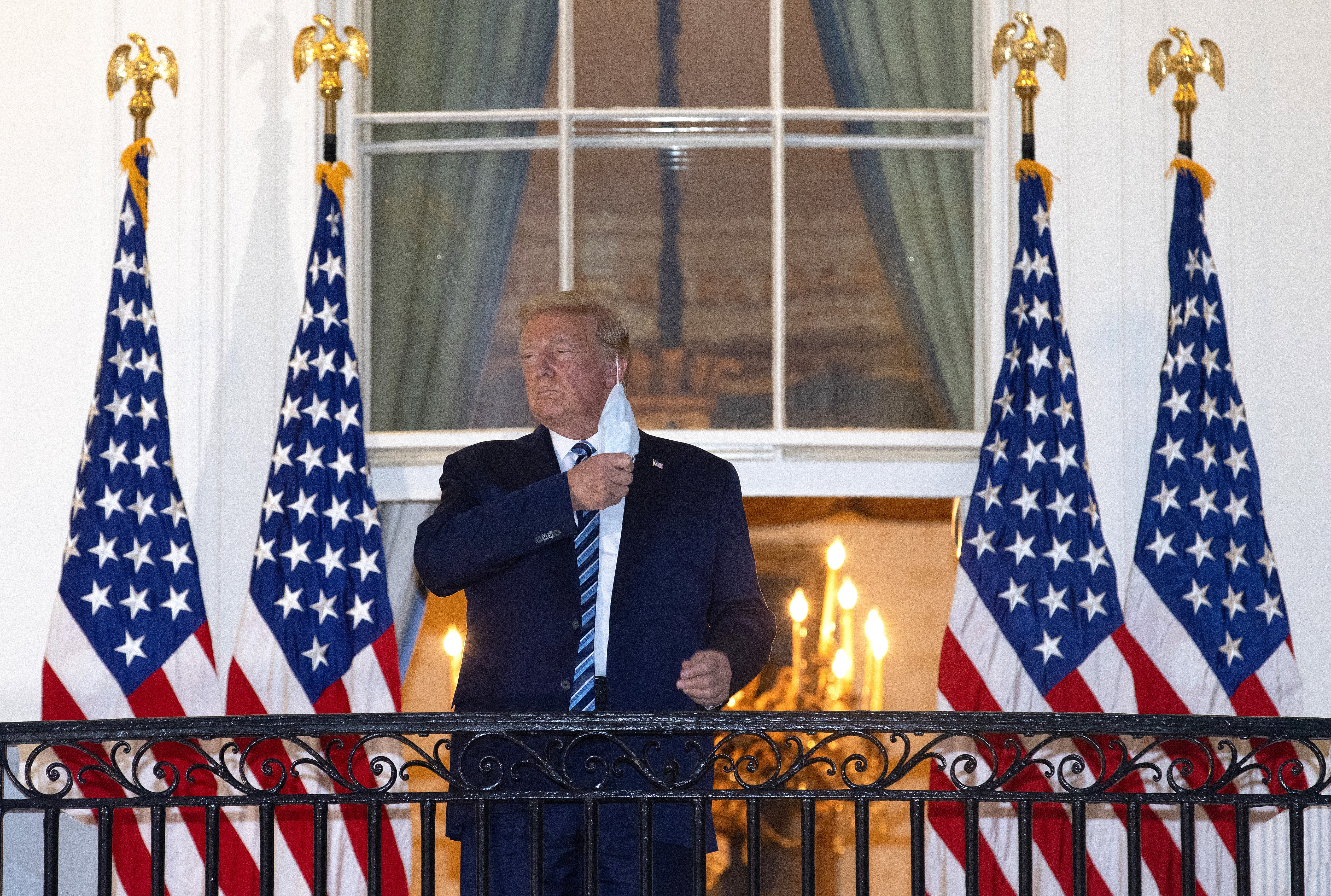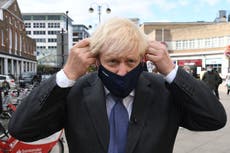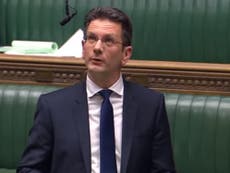Trump now needs to balance science with his libertarian instincts – he should look to Japan for inspiration
Mass transport and much of normal life has continued in Japan, yet its Covid death rate is the lowest in the G7 – Trump would do well to ask why


Among the millions of words being poured out about the political ramifications of The Donald’s brush with coronavirus, I have seen little on how it affects his war with science. If he bounces back quickly, like his ally Jair Bolsonaro in Brazil, he may well double down on the theory that Covid-19 is a minor inconvenience “just like flu” and attribute his recovery to one of the unproven remedies, which someone has encouraged him to rely on, or even his own toughness.
For those of us who instinctively put our faith in science, one of the problems we are having in the political debate around the pandemic is that science is proving as difficult to pin down as nailing jelly to the wall. By the time scientific advice is filtered through the policy-making process, we finish up – in England, at least – with such absurdities as prohibiting two families from organising a children's party for seven in a park, while dozens congregate legally, and apparently safely, inside a badly ventilated pub (at least before 10pm). We are told that scientists have signed off on such nonsense because it fits the theory of R, reducing the overall transmission rate in the population.
There is a buzz in the scientific community around research which suggests that the scientists who advise our government are worrying too much about R and not enough about K. The theory of K – dispersion – starts with an anomaly: that some places have been devastated by Covid (like Lombardy in Italy) but others, for no obvious reason, much less (southern and central Italy). The horrors of Manaos or Guayaquil have by-passed other cities. The theory of R centres on average transmission rates, while K centres on concentrated clusters originating with a small number of “super-spreaders” or “super-spreading” events.
Apparently, only 10 to 20 per cent of infected people are responsible for 80 to 90 per cent of transmission. Most infected people barely transmit it (children hardly at all), though some of those (such as politicians on the stump) meet so many people at close range they can have the same effect as a “super-spreader”. The infamous Patient 31 in Daegu, South Korea, appears to have single-handedly infected over 5000 people through her evangelical church. The policy implication is that instead of locking down large areas of the country because R has crept above 1, the overwhelming priority is to track down, and isolate, the “super-spreaders” and minimise events and venues where they can spread the virus.
The one country where this point has been understood and acted upon most effectively is Japan. Japan could have been devastated by Covid and there were plenty of people warning of disaster. It has enormous cities, a very high population density and one of the highest proportions of elderly people in the world. Unlike some of its Asian neighbours, it was not well prepared for the pandemic and did not have a ready mass test and trace system. Unlike China, it was unable, for legal as well as political reasons, to impose a tough lockdown. Mass transport continued and much of normal life. The government relied on persuasion and the public's self-discipline. Japan has had outbreaks and deaths but its Covid death rate is the lowest in the G7.
The Japanese approach, which we ought to be studying carefully, had two main elements: “cluster busting”, tracing back contacts of infected people to identify clusters and the super-spreader events which gave rise to them; and a preoccupation with ventilation, encouraging people to avoid crowds, in close contact, in closed spaces, especially chanting and singing.
Combined with social distancing, an understanding of the value of masks, and incentives for temporary closure of theatres, music events and stadiums, the country has fared reasonably well. They have suffered just one death per 100,000 people, compared to the UK's 62, and the US's 59. The Japanese economy, the world's third largest, has taken a hit, though not as bad as the worst affected countries like the UK, France, Spain and Italy. Japan seems to have avoided the “worst of all worlds” experienced in the UK: burdensome and increasingly resented restrictions, unnecessary economic damage and ineffectual mitigation.
The Japanese experience might also prove helpful to Trump. Assuming that he recovers quickly and gets back to the campaign trail, he has to find a way of acknowledging that his cavalier disregard for scientific advice wasn't smart; but, at the same time, he has to keep faith with his libertarian supporters who will not accept formal restrictions. A version of the Japanese approach might play well, especially since Tokyo has gone to extraordinary lengths to keep onside with Trump.
When it comes to emerging from a Covid infection personally, there are some lessons for Trump to learn from his “good friend” Boris Johnson. There is a sympathy vote but it doesn't last long; and the public expect, above all, competence when their lives and livelihoods are at stake. Another, more painful, lesson is that this is a disease which doesn't always lend itself to swift and permanent recovery. Even if Trump leaves hospital, he could be back on oxygen support in a week's time.
Without claiming any medical knowledge, I am struck, like many British observers, by the fact that our prime minister gives the impression of suffering from “long Covid”: permanently below par; seemingly exhausted; uncharacteristically slow-witted. It seemed unlikely a few weeks ago but Mr Biden's major selling point in the coming election may prove to be his relatively good health, energy and fitness at 77 years old.



Join our commenting forum
Join thought-provoking conversations, follow other Independent readers and see their replies
Comments